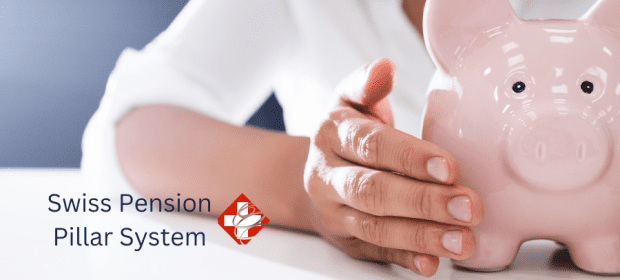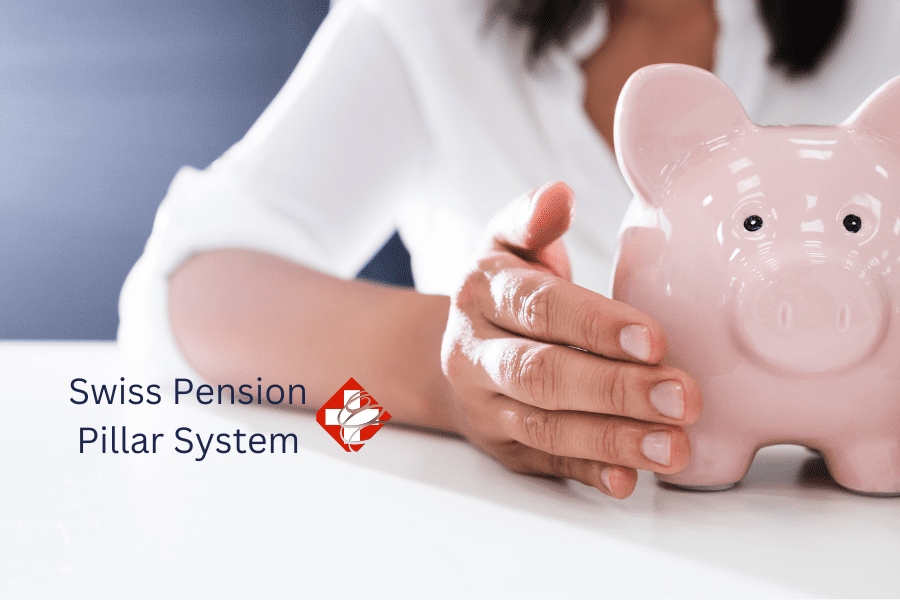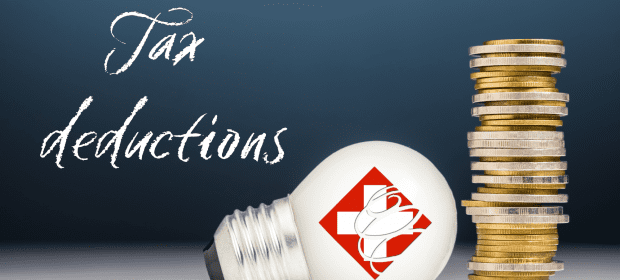This document is intended for information purposes only and does not constitute tax advice. The intention is to highlight that there are a number of financial planning opportunities available and that professional assistance in completing your tax-return is a very good idea. The Spectrum IFA Group can assist you with Pillar 3a tax-deductable savings, arrange a mortgage that is tax-optimised and help you with other forms of financial planning that are tax-efficient. We have certified accounting partners who speak English and will take care of your full tax return from 500 francs, including questions throughout the year.
The calculation of tax throughout Switzerland is based on the net income of the taxpayer. As in most countries, there are several deductions that can be made on your tax declaration. These will, in turn, reduce your taxable income, and therefore the amount of tax you pay.
Although deductions for the direct federal tax are the same throughout Switzerland, deductions at the cantonal and communal levels are regulated differently. Together with all local tax rates, there are frequently large differences between communes, and this should be borne in mind when deciding on where you wish to live, even in the same canton. Switzerland has been at the forefront of internet-based dissemination of information, and generally the relevant information on deductible amounts for your canton and commune can be found on the individual canton’s website, and frequently in English.
Clearly, to claim any of the available reductions in tax-liability, the necessary and supporting paperwork must be submitted with the tax return.
The following are the most important and frequently used, fully compliant and legal deductions.
Work related expenses: Employed persons can deduct work related expenses such as the cost for commuting to work. As a rule, bus and train passes (up to a certain limit) and a flat amount for bicycles, mopeds and scooters are all included under commuting expenses. Under certain conditions, the kilometres driven to the workplace can be deducted when one is using a private vehicle, but there are usually limits both in minimum and maximum distances.
Other work-related expenses include the cost for meals during the working day. Provided one cannot go home for lunch (i.e. there is a minimum distance from the place of work and the tax-payers domicile) these expenses can be deducted from income up to a certain maximum amount, which in turn varies from canton to canton. Additional deductions are also possible for shift or night work. For further work-related expenses such as the cost for work-specific clothing (such as suits), tools or other professional requirements there is a flat rate deduction. If the actual costs can be proven to be higher than the flat rate deduction (which would therefor require receipts to be attached with the tax declaration as supporting evidence) the tax-payer may often deduct the actual costs.
Payments into a pillar 3a: Payments into pillar 3a accounts are tax deductible up to the maximum allowed amount for those residents in Switzerland who have a taxable income. For employees with an employer-provided pension plan, the maximum allowed amount for 2020/21 is 6,826 francs. Self- employed people, and those without an employer-provided pension plan, are allowed to contribute up to 20% of their net income, up to a maximum of 34,128 francs in 2020/21. These maximum allowable deductions are reviewed every 2 years in line with inflation. The tax savings resulting from paying into a pillar 3a are that the taxpayer’s gross income has been reduced by these amounts and are ergo “tax fee”.
Bank vs. Insurance: It should be noted that there are two principal types of 3a. Those provided by banks, where there is no obligation to make a payment during any tax year, and those offered by insurance companies, where the contractual agreement is for a regular annual premium to be paid (this can be made monthly, quarterly, semi-annually or annually). The advantage of the bank 3a is that you are free to pay in or not, depending on your financial circumstances. One down-side is that there is no guarantee on the value of your policy at a later date, as it is always subject to the performance of the bank’s 3a funds. One of the great advantages of an insurance-driven product is that it comes with added life insurance, and also a guaranteed minimum performance and future minimum cash-in values. These insurance policies are also accepted for the amortisation of mortgage debt. On the downside, as there are certain charges taken out of the first annual premium at the very beginning, they should not be entered into without discussion with a qualified expert, and never to be taken for an anticipated term shorter than 5-7 years. Both types of product have federally-governed restrictions on accessing these funds before retirement age, although transfers to other retirement pots are permitted.
Interest Payments: Interest – for example for mortgages or on loans – may be deducted from income. This would apply only to interest and not for repayment of principal used to reduce a loan (amortisation of a mortgage for example). Leasing costs on cars may only be deducted when the individual is classified as self-employed.
Expenses due to illness and accidents: Certain expenses for medical services, which were not covered by your health insurance, can be approved as being tax deductible.
Insurance premiums: Premiums for health, accident, life and pension insurance can often be deducted – up to a certain amount.
Reclaiming withholding tax: When bank or savings account interest is credited, under some circumstances only 65% is credited. In this case the bank transfers 35% of the interest to the tax authorities. On providing the account numbers on the tax declaration, the withholding tax is reimbursed. Withholding tax is applied only to accounts for which the amount of interest exceeds 200 francs. In addition to interest from accounts, interest from other sources such as bonds (including medium-term notes), lottery winnings (starting at 50 francs) and dividend payments are subject to withholding tax, but can often be adjusted to the individual’s marginal tax rate.
Contributions to political parties: Members of a political party may deduct contributions, up to a ceiling.
Contributions to non-profit organisations: Donations to non-profit organisations can usually be deducted. Ask in advance.
Disability costs: People with physical or mental disabilities can make certain deductions for additional expenses. Various organisations throughout Switzerland offer free consultation on this matter as to what might be covered, and at local communal level they are also able to give contact details.
Alimony payments: Alimony payments for children and ex-partners can be deducted in full from gross income.
Charitable donations: Provided the charity is Swiss-registered, the minimum donation is 200 francs, but you may make donations up to 20% of your income.
Deduction for children: Generally a deduction can be made for every child who is under the age of 18, or at further education or still in their initial professional training up to age of 25.
Finally, and this is a typically « Swiss » feature
If you pre-pay your taxes you receive some interest: You can benefit from paying your taxes in advance. This is because the tax authorities pay interest on pre-paid tax payments. This interest is generally higher than the current low interest rates of banks. Clearly not everyone has sufficient liquidity to be able to cover a full year, but even agreeing to pay a partial sum in advance is a good way to make a little extra money.





